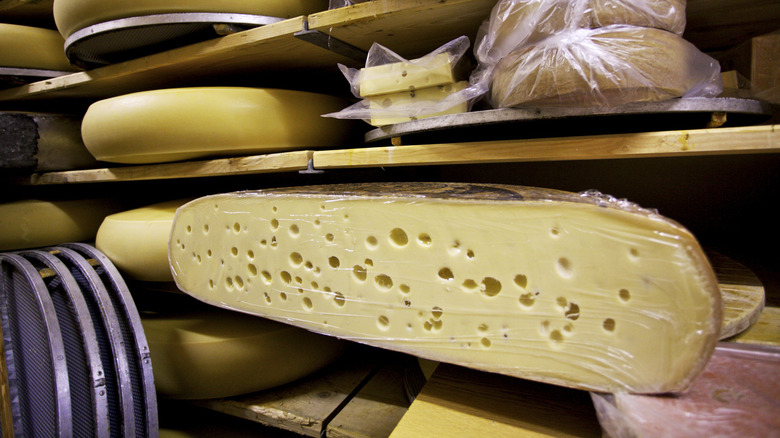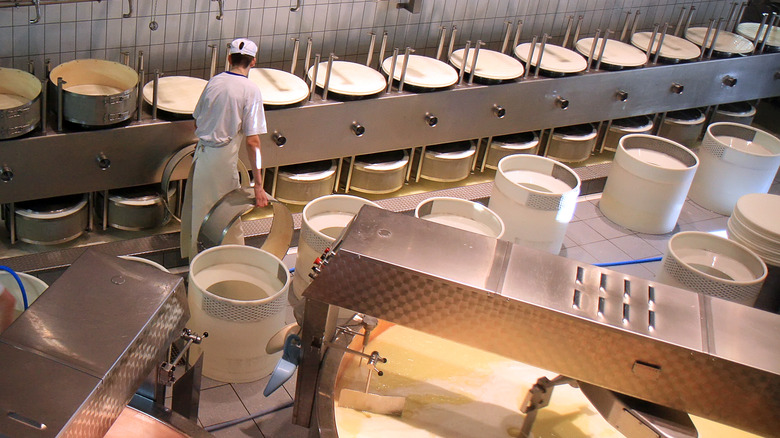The Real Reason Some Swiss Cheese Doesn't Have Holes
Have you purchased some Swiss cheese lately only to notice something's a little off? It's not uncommon these days to come across Swiss cheese that's completely hole-less and it turns out, modern cleanliness and food sanitation might be to blame. For the longest time, this dairy product was thought to gain its holes via the cheesemaking process. Since Swiss is made at a warm temperature, the cheese is pretty malleable when the carbon dioxide forms, creating gas bubbles that become trapped as the cheese cools, according to The Conversation.
However, new research says this popularly-held scientific belief is incorrect and the culprit behind the dairy item's holes is actually much less gaseous and a little bit dirtier. The holes still form during the aging process, but the number of holes in your cheese has now been proven to be linked to how clean the milk is before the aging process begins.
Pieces of hay are causing your Swiss cheese holes
According to a study from Agroscope, a Swiss government agricultural institute, particular types of Swiss cheese, including emmental and appenzell, get their quintessential holes when microscopic pieces of hay fall into the milk used for cheesemaking (via BBC News). The microscopic hay pieces create larger and larger holes the longer the cheese matures. So, if you purchase some Swiss cheese and find it's lacking holes, the study indicates it could mean the cheesemaker practiced more modern and cleaner milking methods, leaving no room for the hay to find its way into your cheese.
But this hypothesis doesn't completely leave out the carbon dioxide that was always blamed previously. According to researchers interviewed for The New Yorker, the hay makes the Swiss cheese holes by providing "the perfect shelter for bubbles of CO2." So, in actuality, the carbon dioxide is still causing the holes in your Swiss cheese, but the hay gives the carbon dioxide somewhere to live long-term.

